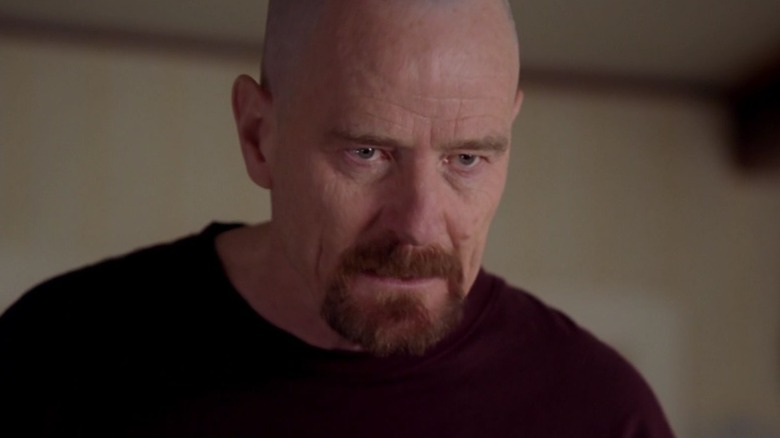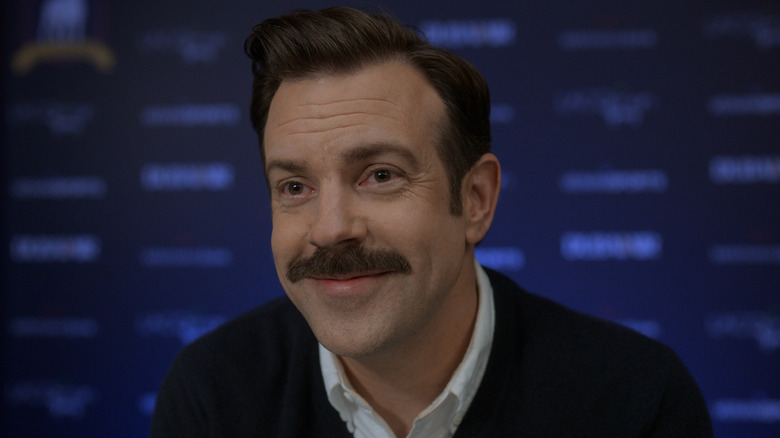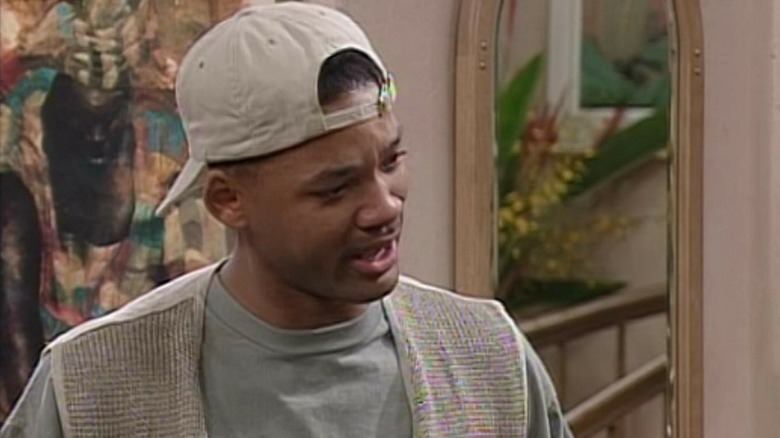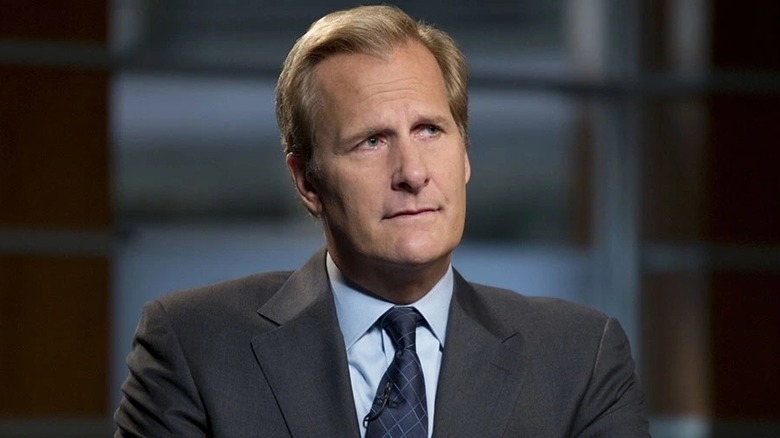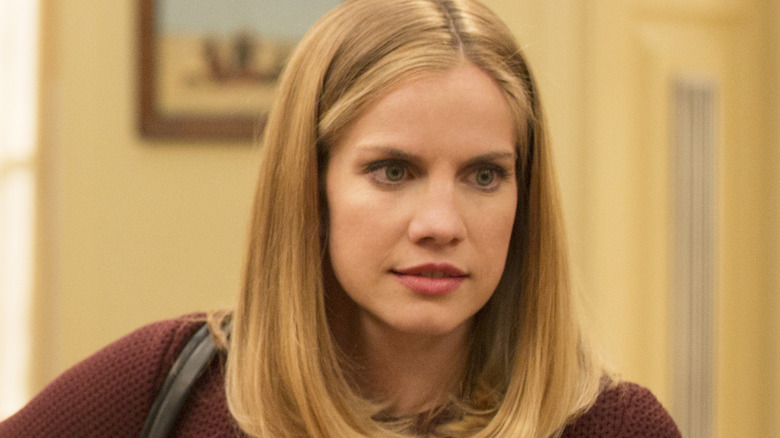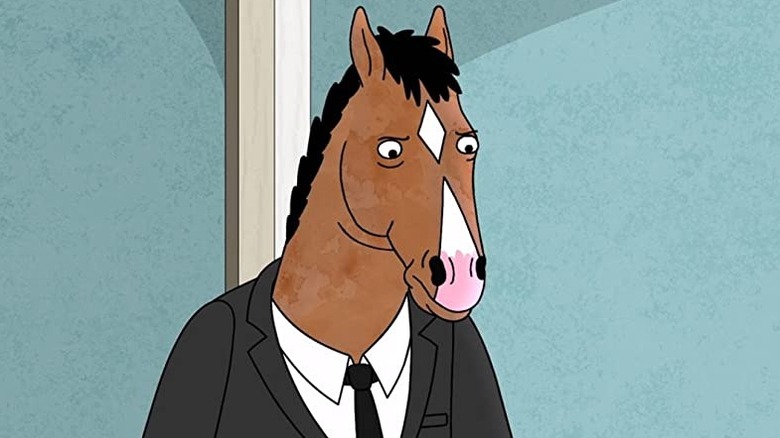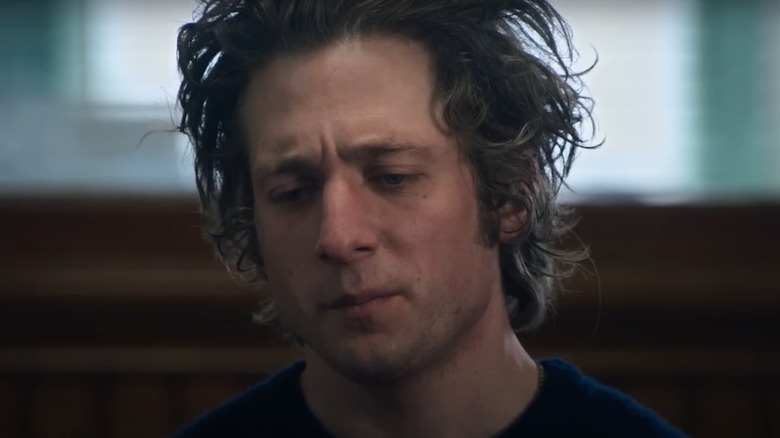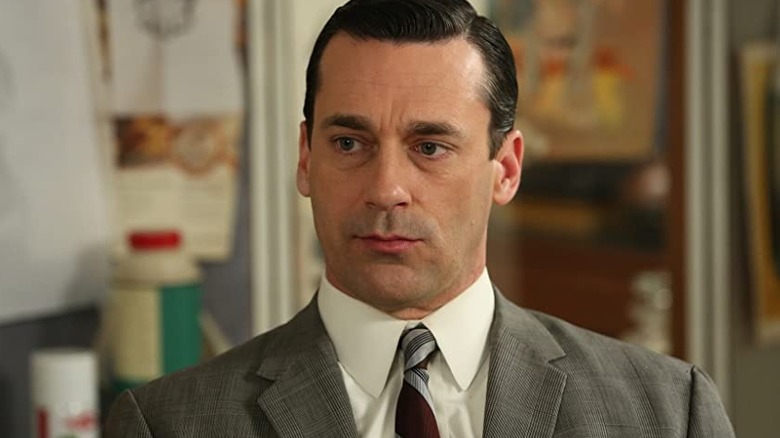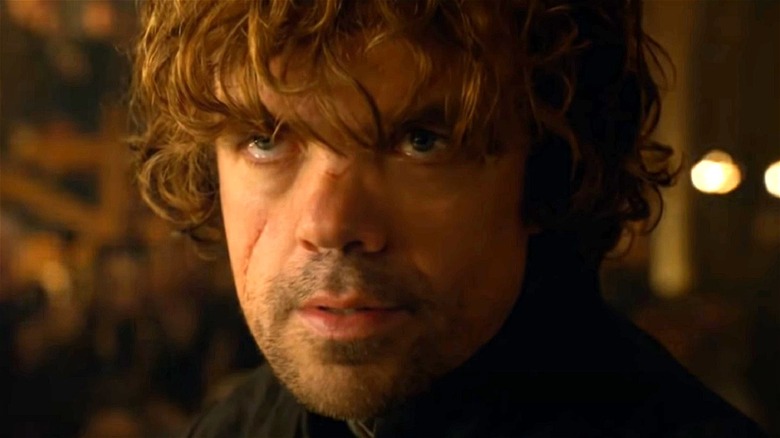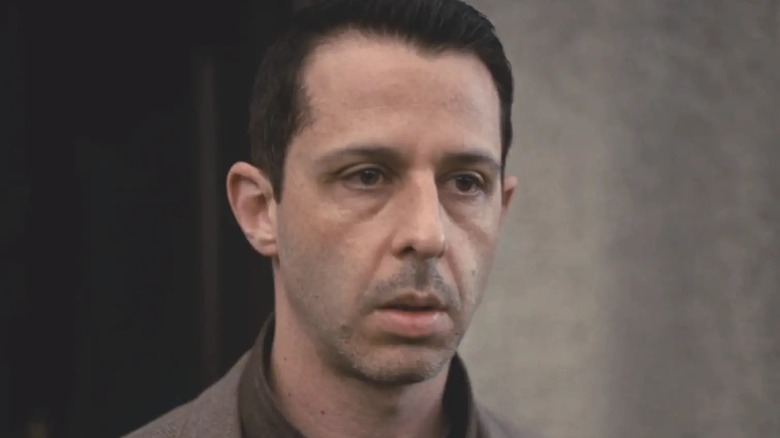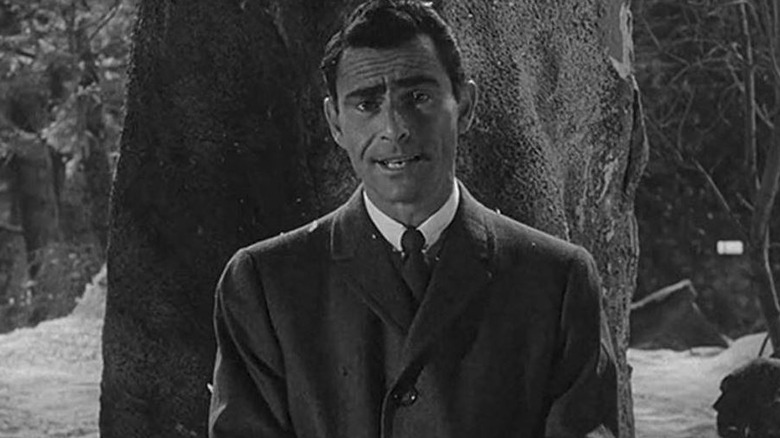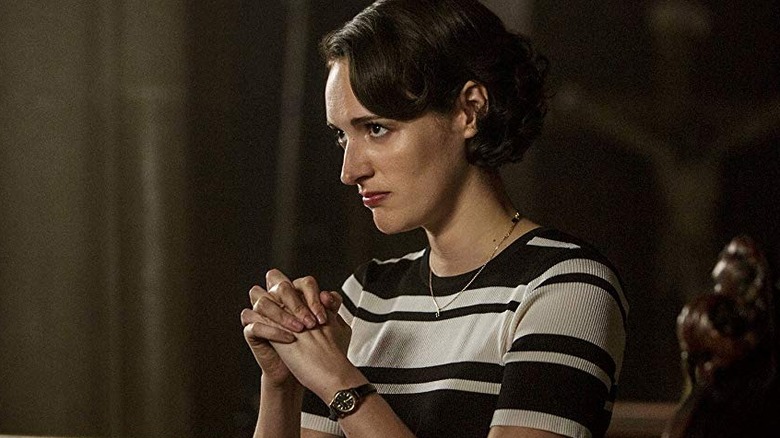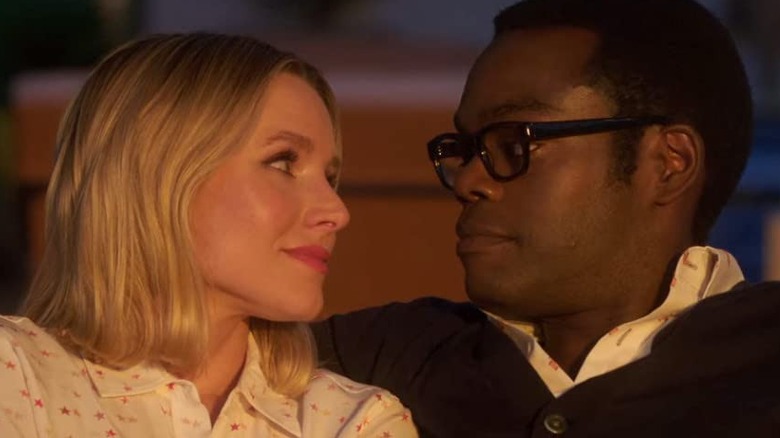The Greatest Monologues In TV History
Filmmaking is perhaps the most collaborative art form there is. To achieve even the most minimalistic look, dozens of departments must coordinate their efforts in support of a single vision. As a result, each department is critical and significant. However, if you had to pick one department that is undoubtedly the most important, it would have to be the actors. They are the people shown on the posters. Fans flock to new releases because of them. Even the most talented directors and producers would concede that a good casting choice is half the job done. And there's no better way for an actor to demonstrate their skills than with a stunning monologue.
Typically, the focus of excellent monologues is justifiably on films. However, television has recently caught up to the big screen, not only in terms of impact but also in terms of attracting renowned actors who can do justice to monologues. And because television is a medium for writers, TV monologues aren't just used to showcase an actor's talent. Instead, they can be utilized to state the overarching theme, deliver an unexpected plot twist, or even pass a political message. As such, a great monologue can elevate a television show to another level. Here are some of the best TV monologues of all time.
Breaking Bad: I am the one who knocks
"Breaking Bad" is undoubtedly one of the best TV shows ever created, but it took a while to get going. When it originally aired, critics recognized it as a good show, but it hadn't really permeated the cultural zeitgeist. When the writers began gradually revealing to audiences that Walter White was not a victim attempting to reclaim lost glory, but a bad guy on the rise, the show became the cultural behemoth that it is today.
The Season 4 episode "Cornered" best depicts Walter's spiral toward villainy. Up until this point, the audience is still hopeful that Walter can achieve salvation. When Walter unintentionally makes himself a target of the DEA, his wife echoes these sentiments, advising him to surrender. Instead, he scolds her, telling her that he is not in danger, but rather that he is the danger. He adds: "A guy opens his door and gets shot and you think that of me? No. I am the one who knocks."
Walter is also speaking to the audience here, informing them that he's gone from downtrodden protagonist to ruthless villain. Even those who have never seen "Breaking Bad" have probably heard of this iconic monologue, demonstrating how ingrained in pop culture the show is.
Ted Lasso: Be curious, not judgmental
What began as a series of lighthearted commercials for NBC's coverage of the English Premier League somehow turned into an Emmy Award-winning dramatic comedy. "Ted Lasso" is the story of an American college football coach who is hired to manage a soccer team in England. He is expected to fail, but becomes a success against all odds. On the surface, it doesn't appear to be the kind of show that would contain a memorable TV monologue. But, like the titular coach, this Apple TV+ series is full of surprises.
In one memorable scene set in a typically English pub, Ted hustles the obnoxious ex-husband of Richmond AFC's owner, Rebecca Welton. Ted suggests a wager: If Rupert beats him at darts he can pick the team for the last two games of the season, but if he loses, he has to stay away from the owners box as long as Rebecca remains in charge. Rupert, assuming that Ted is useless at darts, agrees. Ted delivers a moving monologue as he defeats Rupert.
"Guys have underestimated me my entire life and for years I never understood why — it used to really bother me," he says as the whole pub watches on. "Then one day I was driving my little boy to school, and I saw a quote by Walt Whitman, it was painted on the wall there and it said, 'Be curious, not judgmental.' I like that." Had Rupert been curious and asked Ted about his darts experience he wouldn't have lost. The scene undoubtedly contributed to Jason Sudeikis winning his Emmy.
The Fresh Prince of Bel-Air: How come he don't want me, man?
Will Smith's performances in the early seasons of "The Fresh Prince of Bel-Air" were famously shaky — if you look closely you'll notice him mouthing the lines of his co-stars as he finds his feet. However, Smith had gained some confidence by the time the fourth season episode "Papa's Got a Brand New Excuse" was shot. In the episode, Will's absent father shows up — only to abandon him again.
Smith was asked to perform a dramatic monologue, which he had never done previously. He struggled at first but eventually delivered one of the most sincere and impactful performances of his career. "I'll be a better father than he ever was, and I sure as hell don't need him for that, 'cause ain't a damn thing he could ever teach me about how to love my kids!" he tells Uncle Phil before he breaks down and starts to cry, adding the now iconic line: "How come he don't want me, man?"
Smith later credited James Avery (Uncle Phil) with helping him get through the scene. He told TIDAL's Rap Radar Podcast (via Cheat Sheet): "I'm messing up the lines 'cause I want it so bad and I'm in front of the audience and I'm doing it and I'm furious and he holds on to me and he says, 'Hey, relax. Relax. It's already in there. You know what it is... Look at me. Use me. Don't act around me. Act with me.'"
The Newsroom: America is not the greatest country in the world anymore
A list of the best TV monologues would be incomplete without an Aaron Sorkin show somewhere in the mix. His outlook on American politics has gained him acclaim from critics and fans alike. His first foray into American political discourse was on "The West Wing," but he truly mastered the craft on his later show "The Newsroom." Set at a New York cable news network, the show focuses on the channel's top anchor, Will McAvoy (Jeff Daniels). It is centered on Will becoming disillusioned with the way his country and career are handled.
All of this is summed up in the first episode's first scene. Will McAvoy is at a conference, and a lady from the audience asks him why America is the best country in the world. Will initially attempts to sidestep the question, but when he finally responds, it's explosive. "There is absolutely no evidence to support the statement that we're the greatest country in the world," he says. "It sure used to be. We stood up for what was right. We fought for moral reasons. We passed laws, struck down laws — for moral reasons. We waged wars on poverty, not on poor people. We sacrificed, we cared about our neighbors, we put our money where our mouths were and we never beat our chest. [...] America is not the greatest country in the world anymore."
Speaking to The Hollywood Reporter about the show, Daniels said that this monologue saved his career. "That was the speech I had been waiting 35 years to do," he said.
Scandal: You have to be twice as good to get half of what they have
When Olivia Pope (Kerry Washington) is exposed as the president's mistress in Shonda Rhimes' "Scandal," her father Rowan Pope (Joe Morton) offers her refuge by transporting her out of the country, where she won't be defined by the affair. But, before he does, he lectures her on how he raised her better than to have affairs with powerful men. "How many times have I told you, 'You have to be' — what?" Olivia responds with "Twice as good," and her father's rant continues. "Twice as good as them to get half of what they have. Sleeping with that... For God's sake! You know to aim higher!"
The monologue became a reminder and a motto that things will always be a little more difficult for people of color. The scene "really resonated with African-Americans," Kerry Washington told Entertainment Weekly. "It's this idea you have to be twice as good to get half of what they have. It's something that most Black people I talk, when they heard that line, it completely resonated with how they were raised and the messaged their parents gave them."
Veep: You are the worst thing that has happened to America since food in buckets
"Veep" is an HBO political comedy that balances workplace humor with truly incisive political analysis. Beyond its crude yet witty dialogue, the show's brilliance resides in the way it portrays politics as a game played by narcissists with real-world repercussions. Julia Louis-Dreyfus is the star of "Veep," and her deadpan delivery of the most scathing barbs keeps the audience laughing out loud with her throughout her machiavellian plots. However, the show's secret weapon is that it's essentially an ensemble piece.
Many of the most memorable lines are delivered by members of the supporting cast, like when Amy (Anna Chlumsky) snaps and decides that she's had enough of Selina (Louis-Dreyfus). "You have two settings — no decision and bad decision," Amy says. "I wouldn't let you run a bath without the Coast Guard and the fire department standing by, but here you are running the country. You are the worst thing that has happened to America since food in buckets." There's a catharsis in finally seeing Selina blasted for all the turmoil she causes, considering she's frequently the one grinding her staff for little mistakes.
Bojack Horseman: She just wanted what we all want — to be seen
How long can a monologue go on for? When it comes to "Bojack Horseman," the answer is almost an entire episode. The fifth-season entry "Free Churro" consists largely of the main character delivering a eulogy at his mother's funeral. Will Arnett, who voices the titular anthropomorphic horse (a washed up former actor), picked up an Annie Award for the moving episode.
The monologue he gives at his mother's funeral is full of the kind of humor that made the show so popular, but it also cuts deep. "No point beating a dead horse," he says in his closing statement. "Beatrice Horseman was born in 1938, and she died in 2018, and I have no idea what she wanted. Unless she just wanted what we all want — to be seen... Is this Funeral Parlor B?"
Despite receiving near-universal critical acclaim, the cultural influence of "Bojack Horseman" is criminally modest. To be fair, the show tackles difficult issues that cause viewers to consider the impact of their flaws on their loved ones. At its best, "Bojack Horseman" demonstrated how tough it is to break self-destructive cycles, so it's reasonable if fans watch it and don't feel like making memes about it.
The Bear: He just cut me off cold
One of 2022's biggest success stories, the FX show "The Bear" follows Carmen "Carmy" Berzatto (Jeremy Allen White), an accomplished chef who leaves the world of fine dining behind to take over his family's sandwich shop in Chicago. His brother, who used to run the place, died by suicide before the events of the show unfold. Carmy doesn't go into his relationship with his late brother much over the first seven episodes, but in the Season 1 finale, he unloads during an Al-Anon session. In the gripping monologue, we discover that Carmy used to be very close with his older brother until he just stopped talking to him one day.
"He just cut me off cold," Carmy says. "And that, um... That hurt, you know? And I think that just, that flipped a switch in me where I was like, 'Okay, f*** you, watch this!' And because we had this connection through food and he had made me feel so rejected and lame and s***** and uncool, I made this plan where I was gonna go work in all the best restaurants in the world." According to White, knowing about the monologue in advance "grounded" him throughout the season. "I would read it most days before work just to start getting it into my head," he told Vanity Fair. "I felt like, on every read, as I was trying to memorize bits and pieces, it was helping me understand Carmy in a different way."
Mad Men: This device isn't a spaceship, it's a time machine
Set in the mid-20th century, AMC's "Mad Men" follows advertising executive Don Draper (Jon Hamm), a magnetic character based on several real-life advertising execs. The show frequently investigates the idea of perception versus reality. Draper is a severely damaged individual, but he puts on a front to advance in his profession.
Part of what makes the show so brilliant is that it never shies away from being subtle, even if that means being opaque at times. This technique led to some of the most rewarding sequences in the history of the show. Perhaps the best example of this is the Season 1 finale "The Wheel." Kodak is attempting to market a new method for viewing images, and Draper delivers a monologue that is clearly alluding to his personal life as much as it is the product.
"In Greek, 'nostalgia' literally means 'the pain from an old wound,'" he says as he flicks through old pictures of his family. "It's a twinge in your heart far more powerful than memory alone. This device isn't a spaceship, it's a time machine. It goes backwards, forwards, takes us to a place where we ache to go again. It's not called the wheel. It's called the carousel. It lets us travel the way a child travels. Round and around, and back home again, to a place where we know we are loved."
Game of Thrones: I wish I was the monster you think I am
Monologues are often used to signal the conclusion of an arc. The nature of them makes them perfect for showing the audience that a character has eventually come to terms with something that viewers have known all along. It could be someone's destiny finally being fulfilled. Such is the situation when Tyrion Lannister (Peter Dinklage) realizes during his nephew's murder trial that his family will always despise him simply because he was born different.
In the "Game of Thrones" episode "The Laws of Gods and Men," Tyrion stands accused of murdering King Joffrey. He's innocent, but he knows he won't get a fair trial — his father and sister hate his guts. His brother Jaime (the only family member who ever cared for him) begs him to plead guilty and ask to join the Night's Watch. Instead, Tyrion delivers the most memorable monologue in the history of the HBO hit. "Yes, father. I'm guilty. Guilty. Is that what you want to hear?" When his father, Tywin Lannister, replies with, "You admit you poisoned the king?," Tyrion clarifies what he meant. "No, of that I'm innocent. I am guilty of a far more monstrous crime. I am guilty of being a dwarf."
The power of balance in the scene turns here, and it's down to the performance of Dinklage. "I wish I was the monster you think I am," Tyrion says to the gathered masses. "I wish I had enough poison for the whole pack of you! I would gladly give my life to watch you all swallow it!" The actor won four Emmys for his work on "Game of Thrones," and this monologue is a reminder of why his turn on the show was so celebrated.
Succession: My father is a malignant presence
The success of HBO's "Succession" is no surprise. People love to see how the 1% live, and this show satisfies that thirst by following an aging mogul as he decides which of his offspring will take over his media empire. It is Shakespearean not only because it derives its main premise from "King Lear," but also because of its use of language. Every single phrase spoken by the major characters in "Succession" is designed to manipulate. Patriarch Logan Roy (Brian Cox) believes that to get ahead, you must use speech to mislead people and eventually destroy them. This is a skill that he thinks his heir apparent Kendall Roy (Jeremy Strong) lacks.
In the Season 2 finale, the show plays on this to fool the audience. Logan is dealing with his largest controversy yet, and he offers up his son to the media as a scapegoat. Kendall says he will play ball, but he goes ahead and speaks the truth: "I have been asked to explain my own role in the managing of illegality at the firm and associated coverups. And it has been suggested I would be a suitable figure to absorb the anger and concern. But. The truth is that my father is a malignant presence, a bully, and a liar, and he was fully personally aware of these events for many years and made efforts to hide and cover up." The plot twist is one of the most remarkable in recent memory.
Twilight Zone: Logic is an enemy and truth is a menace
"The Twilight Zone" creator Rod Serling delivered plenty of great opening monologues on the show, but perhaps the most memorable of the bunch is the one that kicks off "The Obsolete Man." This Season 2 episode takes place in a totalitarian society. It follows a librarian to court in a minimalistic set with only an overlong table and a dramatically tall stand for the judge, aptly named the chancellor. According to the chancellor, neither books nor the librarian's faith has any more space in their state. As a result, the chancellor sentences the librarian to death, claiming that the librarian is obsolete.
As the doomed librarian enters the courtroom at the beginning of the episode, Serling delivers a chilling monologue about tolerance and dictatorship. "This is not a new world, it is simply an extension of what began in the old one," he states. "It has patterned itself after every dictator who has ever planted the ripping imprint of a boot on the pages of history since the beginning of time. It has refinements, technological advances, and a more sophisticated approach to the destruction of human freedom. But like every one of the super states that preceded it, it has one iron rule: Logic is an enemy and truth is a menace."
Serling's memorable monologue remains as relevant today as it was back in 1961, when the episode first aired. It was sampled by Run The Jewels in their 2016 track "Thieves! (Screamed the Ghost)."
Fleabag: Why am I still scared?
Monologues are a great way of portraying vulnerability. Given that "Fleabag" began as a one-woman stage production, this came naturally to Phoebe Waller-Bridge. The show follows a British millennial as she navigates adulthood, with the comedy stemming from her self-deprecating humor. Her life changes when she encounters a priest who appears to notice when she is engrossed in her thoughts. Fleabag begins to trust him in ways she has never trusted anyone else as they spend more and more time together. She eventually trusts him enough to tell him how she longs for love, is afraid she won't find it, and believes she doesn't deserve it.
"I just think I want someone to tell me how to live my life, Father, because so far I think I've been getting it wrong, and I know that's why people want people like you in their lives, because you just tell them how to do it," she drunkenly tells the priest from her side of the confessional booth. "You just tell them what to do and what they'll get out at the end of it, and even though I don't believe your bulls***, and I know that scientifically nothing I do makes any difference in the end anyway. I'm still scared. Why am I still scared?" Both the writing and the performance are excellent. "Fleabag" is a show that defines a generation, and this sequence is a standout.
The Good Place: Picture a wave in the ocean
What better way to bring a long-running series to a close than with a monologue that gives viewers closure? "The Good Place" was a standout show that explored the idea of what it means to be a good person and all that stands in the way of viewers accomplishing that goal. The show is funnier than it has any right to be, given the premise, and the chemistry between the two leads, Kristen Bell (Eleanor) and William Jackson Harper (Chidi), always felt fresh. It was difficult to see how the writers could possibly wrap up the plot given the show's numerous time jumps and the multidimensional setting. When the time came, Chidi delivered a beautiful message on time and closure.
"Picture a wave in the ocean," Chidi tells Eleanor in the series finale. "You can see it, measure it — its height, the way the sunlight refracts when it passes through. It's there and you can see it and you know what it is. It's a wave. And then it crashes on the shore, and it's gone. But the water is still there. The wave was just a different way for the water to be, for a little while. That's one conception of death for a Buddhist. The wave returns to the ocean — where it came from, and where it's supposed to be." It's both wise and heartwarming, and a great capper on the show. Monologues can take numerous shapes, and the most impressive ones do more than merely call attention to themselves. The substance will always trump the style.

